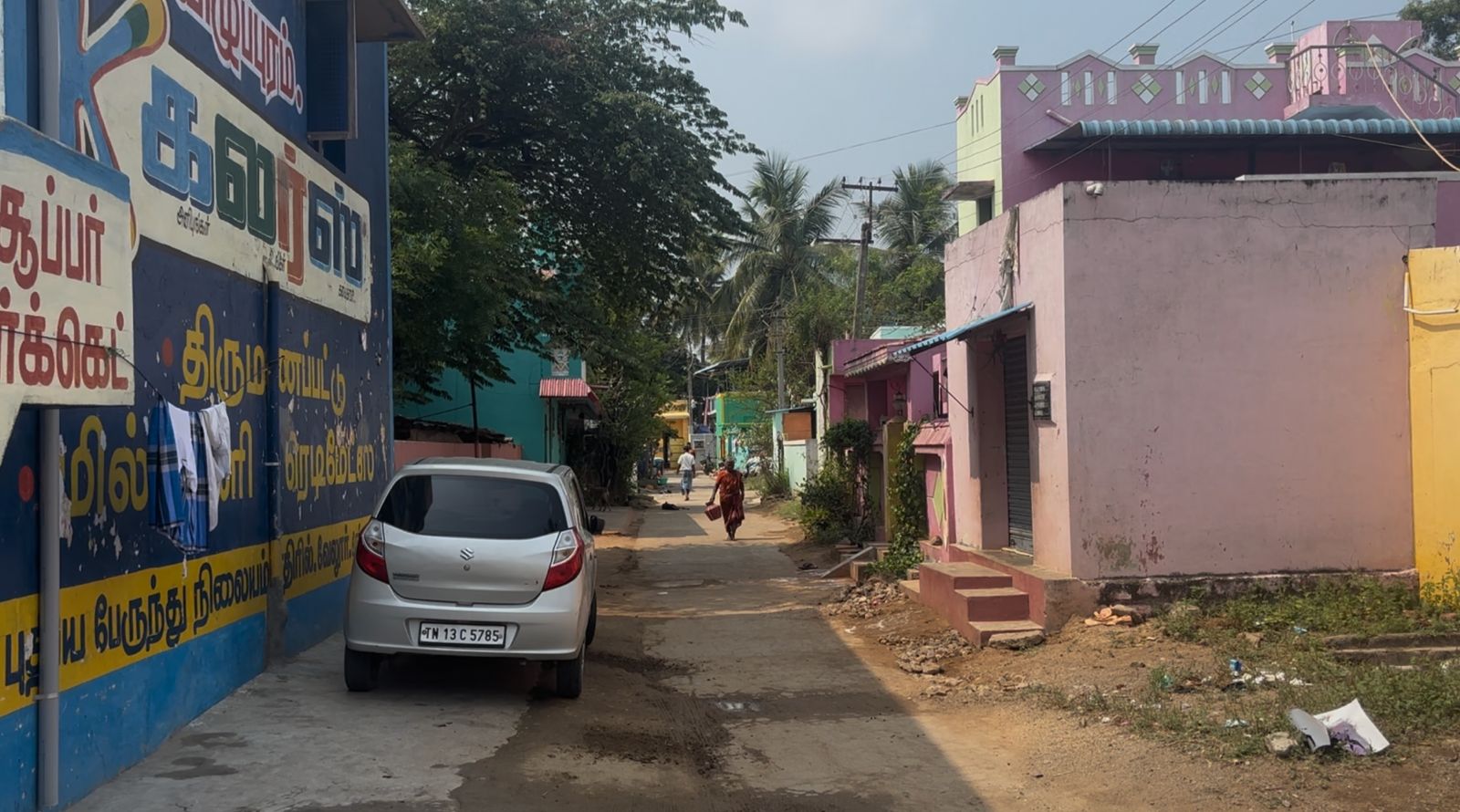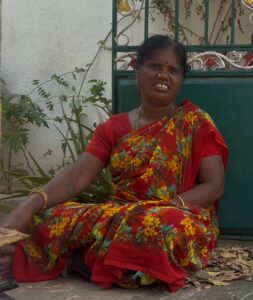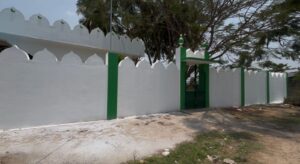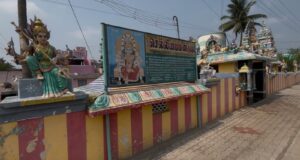Published Apr 19, 2025 | 4:00 PM ⚊ Updated Apr 23, 2025 | 8:46 PM

Houses on the right-hand side of the street have pattas, while those opposite do not since they are claimed to be on Waqf land.
Synopsis: More than 150 families of the Kattukollai village in Vellore have been living on land passed down to them through generations. Even as a nationwide debate was on over the Waqf (Amendment) Bill (which became an Act recently), the Nawab Masjid & Hazrat Syed Ali Sultan Shah Dargah claimed ownership over the land, and demanded rent from the occupants. As soon as the land was claimed to be Waqf, the Hindu Munnani said it belonged to a temple.
In the wake of recent amendments to the Waqf Act, a longstanding land issue has gained renewed attention in Kattukollai, a small village in Tamil Nadu’s Vellore district.
The local Waqf Board has issued notices to over 150 families, demanding rent for the land they have been holding, saying it belongs to the Waqf Board. While no eviction notice has been issued, the development has triggered protests and a legal debate over land rights, ownership records, and historical occupancy.
Located about 20 kilometers from Vellore, Kattukollai is home to thousands. The current dispute centers on a stretch of land where around 150 families reside.
The Waqf Board recently issued a notice asking these families to begin paying rent to the Nawab Masjid & Hazrat Syed Ali Sultan Shah Dargah. The Board claimed that the land has been recorded in the name of the Nawab Masjid & Hazrat Syed Ali Sultan Shah Dargah.
Several residents said they have been living there for four generations, and contested the Board’s claim. They pointed to a key distinction: houses on one side of the main street have formal pattas (land documents), while others on the opposite side do not and fall under land claimed by the Waqf Board.

Sudha’s forefathers settled on the land when it was a sugarcane field.
Village head Palani declined to comment, citing that his house was on patta land and not part of the affected area. However, residents on the disputed side shared their accounts.
“Our ancestors settled here when it was just sugarcane fields. They cleared the land and built huts. We developed it over the years. Even when we built houses, we obtained permission and paid fees to the then-mutawalli, Firose. Now, his son says we must pay rent. We can’t afford it,” Sudha, 53, told South First.
When asked whether their families had formally purchased the land, Sudha replied, “No, we just lived here generation after generation.”
Another resident, Venda Murugesan, 57, said they have been paying property tax. “My in-laws gave us this land when I got married. We built our house with our savings. Back then, no one from the mosque objected. Now they are asking for rent. Why should we pay? We already pay water, electricity charges, and property taxes,” she said.
A copy of the notice, dated 14 February 2025, issued by the Nawab Masjid and Hazrat Syed Ali Sultan Shah Dargah in Virinchipuram claimed that the residents were occupying Waqf land without authorisation and must regularise their stay by paying rent.

It is claimed that the land belongs to the Nawab Masjid and Hazrat Syed Ali Sultan Shah Dargah.
The notice also stated that failure to comply would amount to encroachment. It asked the occupants to meet the mosque administrators within seven days.
In response, the villagers staged a protest and submitted a petition to the District Collector demanding land ownership documents (pattas). District Collector VR Subbulaxmi told reporters that a Revenue Divisional Officer (RDO) inquiry has been ordered.
Syed Sadham, the Dargah’s current mutawalli, said the Collectorate has records regarding the disputed land.
“This land has been registered as Waqf property since 1955 in the Tamil Nadu Gazette, and records are available with the District Collector’s office,” he said.
“Even the recent patta records show that this land belongs to the mosque. My father, the previous mutawalli, faced many challenges when trying to reclaim the land. He even faced political pressure,” he stated.
Sadham said the land was originally used for agriculture, with only a few families staying there in the early 1990s. They were permitted to reside there temporarily in exchange for a part of the harvest.

The notice sent to the residents.
“Over time, more people moved in with relatives, friends without any formal agreement. I have been trying to regularise the situation legally. I’ve issued multiple notices and told residents to sign agreements and pay a modest rent, between ₹150 and ₹500 a month,” he added.
However, he claimed that political groups and organisations have recently influenced the villagers. Initially, the people are willing to cooperate, but now they’re being misled. Some organisations are using the recent Waqf (Amendment) Act, 2025, to stir public sentiment and push for pattas. The same residents who were willing to negotiate are now refusing.”
Among the organisations active in the village is the Hindu Munnani. According to Inbarani, 43, a resident, “No major political party is helping us. The protest is being led by the Hindu Munnani.”
Pichandi, a local organiser of the Hindu Munnani and a village resident, questioned the muttawali‘s claim.

The Hindu Munnani claims that the land belongs to the Virinjipuram temple.
“This land doesn’t belong to the Waqf Board. Our ancestors told us it belongs to the Virinjipuram temple.” When asked if they have documentary proof, he replied in the negative. “Not yet. We are still searching. It was passed down to us verbally.”
Sadham said that the residents were not asked to vacate the land. “We want them to legally formalise their stay and pay a nominal rent. But the issue has been politicised.”
It was found that while most residents acknowledged that the land belonged to the Dargah, they resisted making formal rental agreements. Meanwhile, Hindu Munnani’s position challenged the Waqf’s claim, although no supporting documents have been produced.
Vellore RDO Senthilkumar said both the mosque administration and residents have submitted documents.
“We have submitted our report to the District Collector. Since this is a sensitive issue, the government will study it before making a final decision,” he told South First.
(Edited by Majnu Babu).

